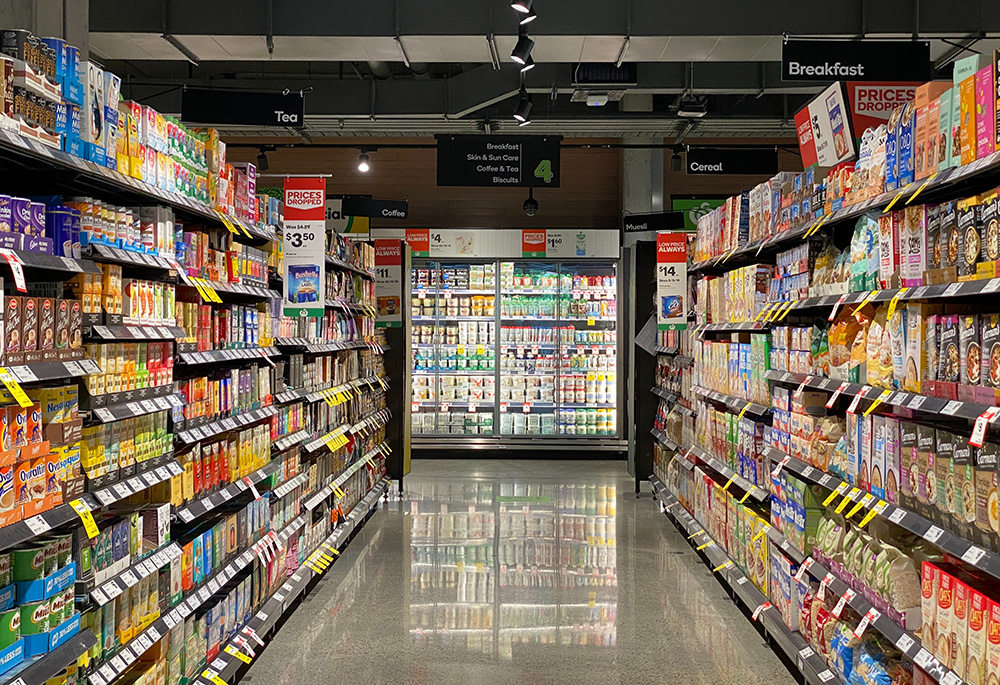
Cereal and other products are pictured at a supermarket. Congress appropriates funds annually for the Special Supplemental Nutrition Program for Women, Infants, and Children, or WIC. As Dwayne David Paul writes, this year the funding proposals in the House and Senate fail to meet projected participation levels. (Unsplash/Franki Chamaki)
If Congress does not act, about 600,000 mothers, infants and small children are at risk of being waitlisted or altogether removed from the Special Supplemental Nutrition Program for Women, Infants, and Children, or WIC, by Friday, Nov. 17.
WIC is a federal grant program facilitated by the states. Congress must appropriate funds for the program annually, and this year the funding proposals in the House and Senate fail to meet projected participation levels. The shortfall in the Senate version of the bill appears to be the product of simply underestimating 2024 participation levels; the House version attempts to shrink the program altogether.
Adding poor children to a waitlist for food is a ghoulish proposition for many reasons, not the least of which is that it's a euphemism. Small children are not "waitlisted" for food, they are abandoned. Catholics need to show up for this issue, contacting our legislators now and beyond this acute crisis.
The principles of Catholic social teaching are not just about promoting magnanimity and self-sacrificial love. They would be politically worthless if that were the case. There is also a self-interested quality to them that is much less romantic and much more grounded in realpolitik. Yes, solidarity because of my commitment to humanity made in the image of God. Yes, too, because in my time of need, I hope someone will have my back, as well. Yes to the option for the poor and vulnerable because that most emulates the ministry of Jesus. Yes, too, because like most people, the quality and duration of my life are subject to the vicissitudes of the market.
Advertisement
The preferential option for the poor is not an aside to the promotion of the common good; it is at the core. The interests of the most vulnerable are our own morally because we have the capacity to meet their needs. They are ours politically because we share in their human frailty. I struggle to imagine what the floor will be for the rest of us in our time of need if we allow the government to visit a wholly avoidable crisis upon 600,000 new mothers and small children.
Thankfully, WIC is good public policy. In 2022, the U.S. Department of Health and Human Services released a report evaluating the impact of program participation on health outcomes for participants. It was a systematic reivew of 98 studies tracking such outcomes. Program participation was associated with improved birth outcomes such as lower risk of preterm birth and low birth weight. It was also associated with lower infant mortality, improved cognitive development, and likely associated with better child diets.
A similar review from the Center for Budget and Policy Priorities also found that low-income children who participated in the program were just as likely as their more affluent peers to be immunized, and were more likely than their low-income peers to receive preventative medical care. Furthermore, children whose mothers participated scored higher on developmental assessments at age 2, and later performed better in reading assessments than their peers with similar socioeconomic profiles whose mothers did not receive those benefits. WIC works.
Expecting or postpartum parents should not be compelled to jump through administrative hoops to have wholly predictable needs met.
Pregnancy through early childhood is a time of high stakes and high vulnerability for both mothers and children. Nutritional impacts in these periods go a long way to shaping life outcomes. As these studies and countless others show, access to nutritious foods in the prenatal to early childhood window promotes healthy outcomes for mothers and children individually. Many of these individual outcomes, including improved behavioral and social-emotional development, have carryover benefits to communities. A high universal floor for childhood nutrition is one way countries invest in themselves, by investing in their children.
On the other side of this acute crisis, I hope that we can dare to imagine a system of greater, more comprehensive care for the most vulnerable among us. We are in this situation because WIC is a grant program appropriated for some rather than an entitlement guaranteed to all. Universal forms of human frailty should be met with universalized care. Expecting or postpartum parents should not be compelled to jump through administrative hoops to have wholly predictable needs met. WIC cards could go out with the Social Security cards that the government manages to send every parent even though nobody asks for one. We have all the information we need to do this. This would boost participation, and the benefits thereof, which as of 2021 stood at 51.2% of program-eligible people, according to the U.S. Department of Agriculture.
The problems our nation faces are often grand, but this one is not. Political life is big and complicated, but this issue is pretty straightforward. All children are our children. At a time when both maternal mortality rates and early childhood health markers are trending in the wrong direction, it is urgent for lawmakers to ensure that interventions with a proven track record like WIC have all the funding and infrastructure they need.






